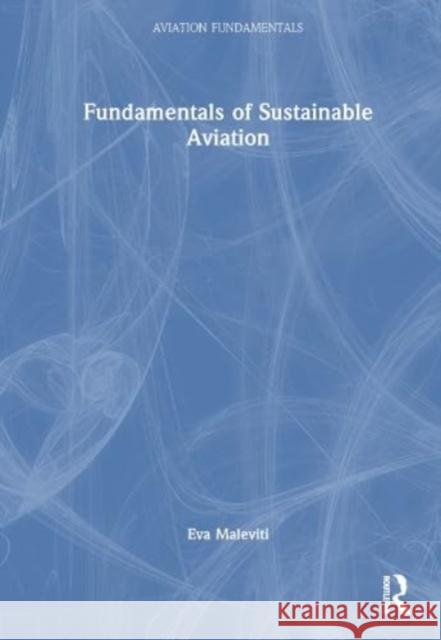Fundamentals of Sustainable Aviation » książka



(netto: 674,98 VAT: 5%)
Najniższa cena z 30 dni: 653,11
ok. 16-18 dni roboczych.
Darmowa dostawa!
Fundamentals of Sustainable Aviation is the first textbook to survey the critical field of sustainability within the aviation industry. Taking a systems thinking approach, it presents the foundational principles of sustainability and methodically applies them to different aviation sectors.
Wydanie ilustrowane
CHAPTER 1: FUNDAMENTALS OF SUSTAINABILITY
Chapter Outcomes
Introduction
The Concept of Sustainability
The Three Pillars of Sustainability
First Circle - Environmental Sustainability
Second Circle - Social Sustainability
Third Circle - Economic Sustainability
The 17 Sustainable Development Goals
Sustainability in Aviation
The Role of International Air Transport Association IATA
International Civil Aviation Organization (ICAO) and Sustainability
Conclusion
Key Points to Remember
Case Study: Pet Rescue Mission
Chapter Review Questions
Case Study Questions
References
CHAPTER 2: ENVIRONMENTAL SUSTAINABILITY IN AVIATION
Chapter Outcomes
Introduction
Aviation Environmental Impacts
Aviation Emissions
Aircraft Noise
Market-Based Measures
European Union Emissions Trading Scheme (EU-ETS)
ICAO CORSIA
FAA ENVIRONMENTAL POLICY
EASA ENVIRONMENTAL INITIATIVES
EASA Part 21: Certification Specification 34 and 36
Conclusion
Key Points to Remember
Review Questions
Case Study Questions
References
CHAPTER 3: ECONOMIC ASPECTS OF AVIATION SUSTAINABILITY
Chapter Outcomes
Introduction
What Is Economic Sustainability?
The Five Capitals Model
Aviation Economic Benefits
Employment
Connectivity, Tourism and Trade
When Everything Stops
Aviation and Economic Circularity
From Linear to Circular Model
What Is a Linear Economic Model?
The Steps to Circular Economy
The Benefits of Industrial Symbiosis to the Aviation Industry
What Can the Aviation Sector Do to Change?
Elements for A Sustainable Growth in the Aviation Industry
Conclusion
Key Points to Remember
Review Questions
Project Case Questions
References
CHAPTER 4: AVIATION SOCIAL SUSTAINABILITY
Chapter Outcomes
Introduction
What Is Social Sustainability?
Human and Social Capitals for Aviation
The Social Capital for Aviation
The Human Capital for Aviation and Aerospace
Employment and Aviation Human Factors
Human Factors Affecting Aviation Social Sustainability
Aviation and Aerospace Corporate Social Responsibility
Environmental, Social and Governance
Conclusion
Key Points to Remember
Case Study: New MRO Facility in Kochi Area, India
Chapter Review Questions
Case Study Questions
References
CHAPTER 5 SUSTAINABLE AVIATION DESIGNS
Chapter Outcomes
Introduction
Aircraft Designs
Aerodynamics
Propulsion
Structure and Materials
What Is Life Cycle Assessment?
ISO Series Standards 14040 and LCA
ISO 14040
Life Cycle Assessment Methods
Conclusion
Key Points to Remember
Review Questions
References
CHAPTER 6 SUSTAINABLE AVIATION FUELS
Chapter Outcomes
Introduction
Aircraft Fuels
Sustainable Aviation Fuels
How to Produce Sustainable Fuels
CORSIA and SAF
What Is a CORSIA Eligible Fuel (CEF) and How to Make It
SAF Feedstock and Fuel Conversion
LIFE CYCLE EMISSION VALUE (LSf)
The use of SAF and the Sustainable Development Goals
Conclusion
Review Questions
Key Points to Remember
References
CHAPTER 7: SUSTAINABLE AVIATION PROCESSES AND TECHNIQUES
Chapter Outcomes
Introduction
Safety and Sustainability
An Aviation Safety and Sustainability Model
Cybersecurity and Aviation Sustainability
Lean Six Sigma
The Benefits of Using Lean Six Sigma
Lean Methodology for Flights
Lean Methodology for Maintenance, Repair and Overhaul
Sustainability Root Cause Analysis
Why Is It Important to Determine the Root Cause?
Conclusion
Key Points to Remember
Review Questions
Acronyms
References
CHAPTER 8 : SUSTAINABLE AIR TRAFFIC MANAGEMENT
Chapter Outcomes
Introduction
Guiding ATM Principles and Sustainability
Enhance Performance-Based Navigation
PBN and Environmental Sustainability
Airport Terminal Cybersecurity
Aircraft and Air Traffic Control Cybersecurity
Conclusion
Key Points to Remember
Acronyms
Review Questions
References
CHAPTER 9 SUSTAINABLE AVIATION FACILITIES
Chapter Outcomes
Introduction
Leadership in Energy and Environmental Design (LEED)
BRE'S ENVIRONMENTAL ASSESSMENT METHOD BREEAM
ISO Management Systems
What Is a Management System
Processes and Procedures
ISO 14001 Environmental Management Systems
ISO 50001 Energy Management Systems
ISO 45001 Occupational, Safety and Health Management Systems
Waste Management
Waste Management Principles
Sustainable Approved Training Organisations
Conclusion
Key Points to Remember
Review Questions
Case Study
Case Study Questions
References
CHAPTER 10: SUSTAINABILITY AND RESILIENCE IN AVIATION AND AEROSPACE
Chapter Outcomes
Introduction
The Future of Aviation
Supersonic Flights
Hydrogen Cells
Electric Aircraft
New Tools for Aviation Sustainability
Closing the Loop: What Is Aviation Sustainability
Conclusion
Key Points to Remember
Acronyms
Review Questions
References
Eva Maleviti is Assistant Professor and Program Coordinator of the MS in sustainability in aviation and aerospace at Embry-Riddle Aeronautical University. She has been an academic for over 14 years in British, US and Greek Academic Institutions. Dr Maleviti has taught and developed various aviation-related courses in aviation sustainability, safety and quality, human factors in aviation maintenance, risk management, aviation legislation, environmental and energy management systems, and waste management practices for aerospace organisations. Since 2019, she has been a technical expert for the ICAO CORSIA and EU-ETS schemes with the Hellenic Accreditation System. For ten years, she was the academic coordinator and instructor at the Training Directorate of Hellenic Aerospace Industry (EASA Part 147 MTO). She has extensive experience as an aviation consultant in air operator and maintenance organisations, offering sustainability strategy development, ESG reporting and various tailor-made aviation consulting services. She is IRCA-certified Lead Auditor for Quality Management Systems ISO 9001 and in 9100D – Quality Management Systems for Aviation, Space and Defense Organizations. She holds a private pilot’s license (A), a UAS license specific category C and is a member of the Royal Aeronautical Society, UK. She has a PhD and MSc in sustainable development, a graduate certificate in aviation maintenance and a BSc in physics.
1997-2026 DolnySlask.com Agencja Internetowa
KrainaKsiazek.PL - Księgarnia Internetowa









